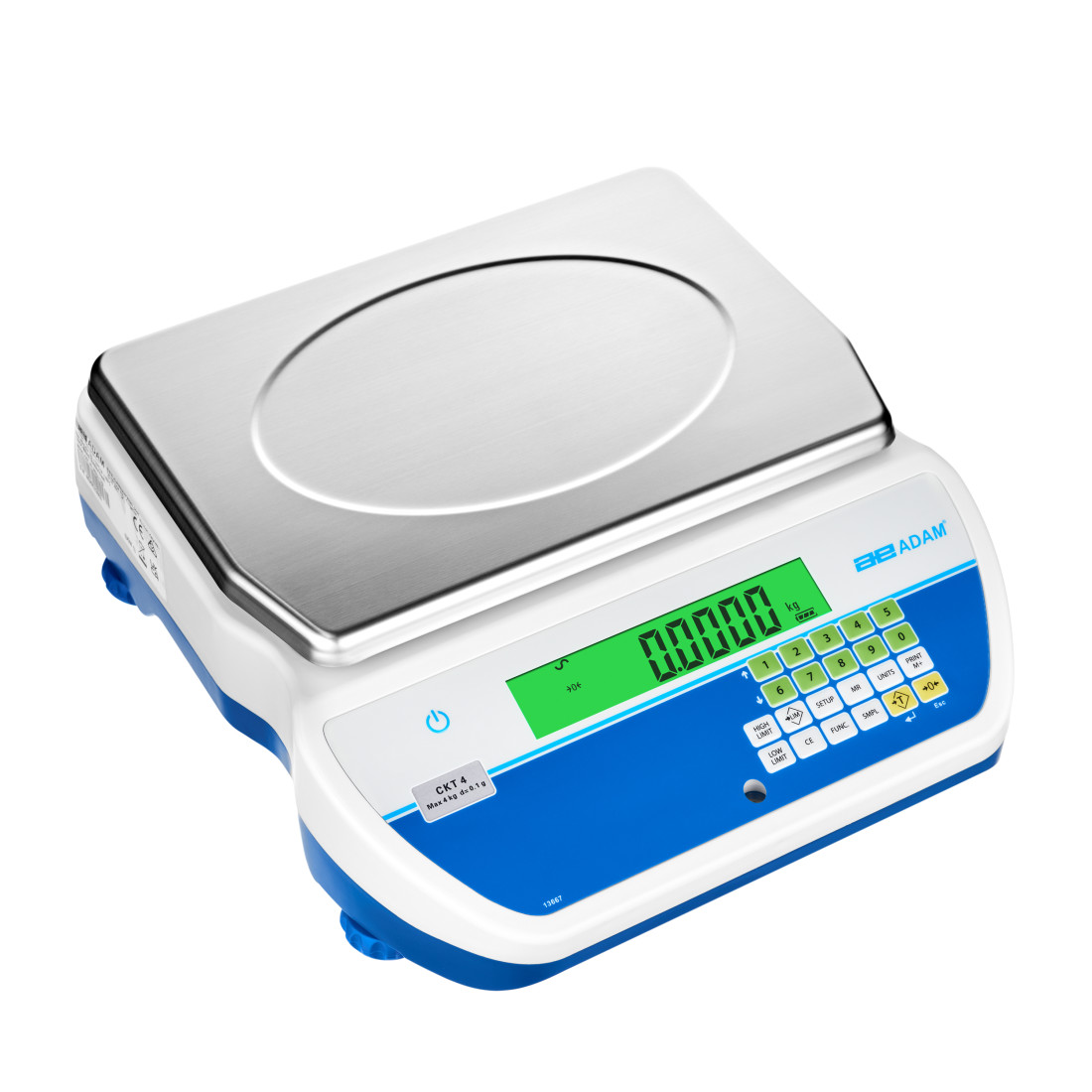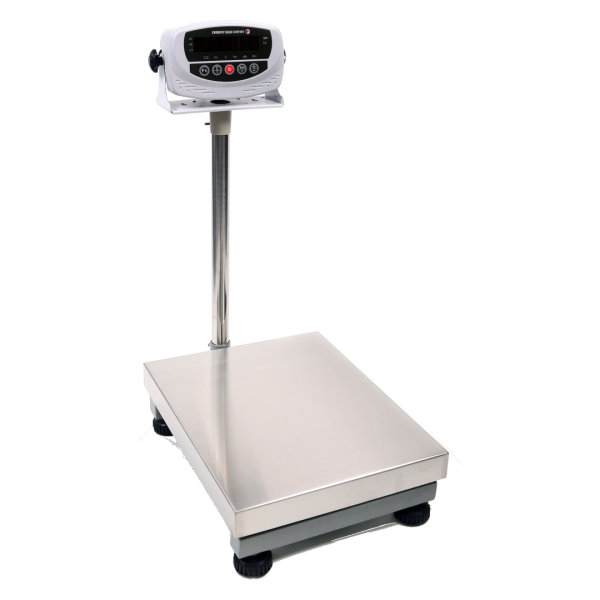Top Features to Look for When Purchasing Industrial Scales for Your Facility
Top Features to Look for When Purchasing Industrial Scales for Your Facility
Blog Article
Just How Industrial Scales Job: A Comprehensive Introduction for New Users
Comprehending the mechanics behind commercial scales is important for new users that intend to make certain precision in their measurements. These devices count on tons cells and pressure gauge modern technology to convert weight right into a quantifiable style, however the subtleties of their procedure prolong beyond simple functionality. From the numerous types available to the crucial techniques for proper usage and maintenance, each element plays a considerable function in attaining reputable results. As we check out these parts, one have to take into consideration exactly how these components connect to improve performance in varied commercial applications.
Fundamentals of Industrial Scales
Industrial scales are necessary tools utilized throughout various industries, including manufacturing, logistics, and agriculture, to guarantee precise weight dimensions of heavy lots. The basic concept behind commercial scales includes the conversion of weight into a quantifiable type that can be shown electronically or analogically. These ranges employ various systems, such as tons cells or mechanical levers, to determine the weight of items positioned upon them.

Along with their dimension capabilities, industrial scales are developed to withstand extreme atmospheres, featuring durable construction that withstands dirt, moisture, and heavy impacts. Calibration and upkeep are important to ensure precision, as also small disparities can lead to substantial financial implications. By recognizing the fundamentals of industrial ranges, individuals can appreciate their value in different commercial applications.
Types of Industrial Scales
Various sorts of industrial ranges accommodate the diverse requirements of different markets, each created to manage certain evaluating jobs with precision and reliability. Among the most common types are flooring scales, which are excellent for considering large and hefty items. These ranges usually include large platforms and can fit palletized products, making them important in warehouses and delivery facilities.
An additional kind is bench scales, which are usually used for smaller products in manufacturing and retail setups. They offer exact dimensions for items that need precision, such as chemicals or components in production line (Industrial Scales). For mobile operations, portable scales provide flexibility and ease of transport, suitable for fieldwork or momentary installations
In applications calling for high-capacity measurements, such as wholesale material handling, crane scales and load cells are utilized. These ranges can gauge lots suspended from a crane or other lifting apparatus, ensuring security and accuracy throughout operations. Additionally, specialized scales like checkweighers are utilized in assembly line to keep quality control by making certain that products fulfill weight requirements. Each kind of commercial range plays a crucial duty in boosting functional performance and precision across numerous industries.
Exactly How Evaluating Systems Job
Weighing mechanisms are crucial elements that allow precise dimension of mass throughout different industrial ranges. These mechanisms use various concepts of physics and engineering to give exact weight analyses, essential for inventory management, high quality control, and compliance with regulative criteria.
One usual sort of considering system is the lots cell, which operates the concept of strain evaluates. When a tons is used, the load cell flaws slightly, producing an electrical signal proportional to the weight. This signal is after that exchanged a legible weight dimension by the range's electronic devices.
Another widely utilized mechanism is the mechanical balance, which employs a system of weights and bars. Industrial Scales. This technique counts on the concept of balance, where the weight of the object advice being determined is stabilized versus understood weights, permitting straight dimension
Additionally, hydraulic and pneumatically-driven ranges leverage fluid dynamics concepts to gauge weight. These systems make use of the stress put in by a load to figure out weight, offering high precision for massive tons.
Correct Use Strategies
When utilizing commercial ranges, adhering to correct use strategies is crucial for guaranteeing exact measurements and maintaining devices stability. It is essential to pick the ideal scale for your particular application, as scales differ in ability and accuracy.
Prior to weighing, guarantee that the scale is positioned on a steady, degree surface devoid of resonances or disturbances. This will certainly assist to lessen errors brought on by exterior variables. In addition, calibrate the scale according to the manufacturer's requirements before utilize, making sure that it is working appropriately.
When putting things on the range, disperse the weight uniformly to stay clear of tipping or damaging the equipment. Constantly enable the range to maintain prior to videotaping the weight, as changes might take place throughout initial placement. For bulk materials, utilize containers that are ideal for the range dimension to protect against overloading.
Moreover, prevent putting excessively hot or cool things directly on the scale, as temperature level variations can impact precision. Lastly, keep the evaluating system complimentary and clean of particles to avoid contamination and ensure trustworthy outcomes. By following these methods, users can maximize the efficiency and durability of their commercial scales.
Upkeep and Calibration Tips
Making sure the long life and accuracy of industrial ranges needs diligent maintenance and normal calibration. A preventative upkeep schedule is crucial; it ought to consist of regular evaluations to identify wear and tear, especially on load cells and various other sensitive parts. Routinely cleaning up the scale's surface and making sure the surrounding location is devoid of debris will certainly assist maintain its integrity and efficiency.
Calibration is similarly crucial and ought to be done at normal intervals or whenever the scale experiences significant changes in temperature, moisture, or physical variation. Make use of certified calibration weights that are traceable to national criteria for precision. File each calibration session thoroughly to track performance over time and recognize any type of patterns or reoccuring problems.
Train all operators on proper range usage and upkeep procedures to ensure regular performance and precision. By sticking to these upkeep and calibration tips, users can enhance the reliability of their commercial ranges, guaranteeing optimum operation in any type of setting.
Final Thought

Understanding the technicians behind commercial scales is important for new individuals who desire to ensure accuracy in their dimensions.Industrial ranges are important tools used across various industries, including production, logistics, and farming, to make sure accurate weight measurements of heavy loads. read review The fundamental blog principle behind commercial ranges includes the conversion of weight right into a quantifiable kind that can be presented electronically or analogically. By comprehending the essentials of industrial scales, customers can appreciate their value in numerous commercial applications.
In final thought, understanding the operation and upkeep of commercial scales is important for making sure exact weight measurements in numerous applications. (Industrial Scales)
Report this page